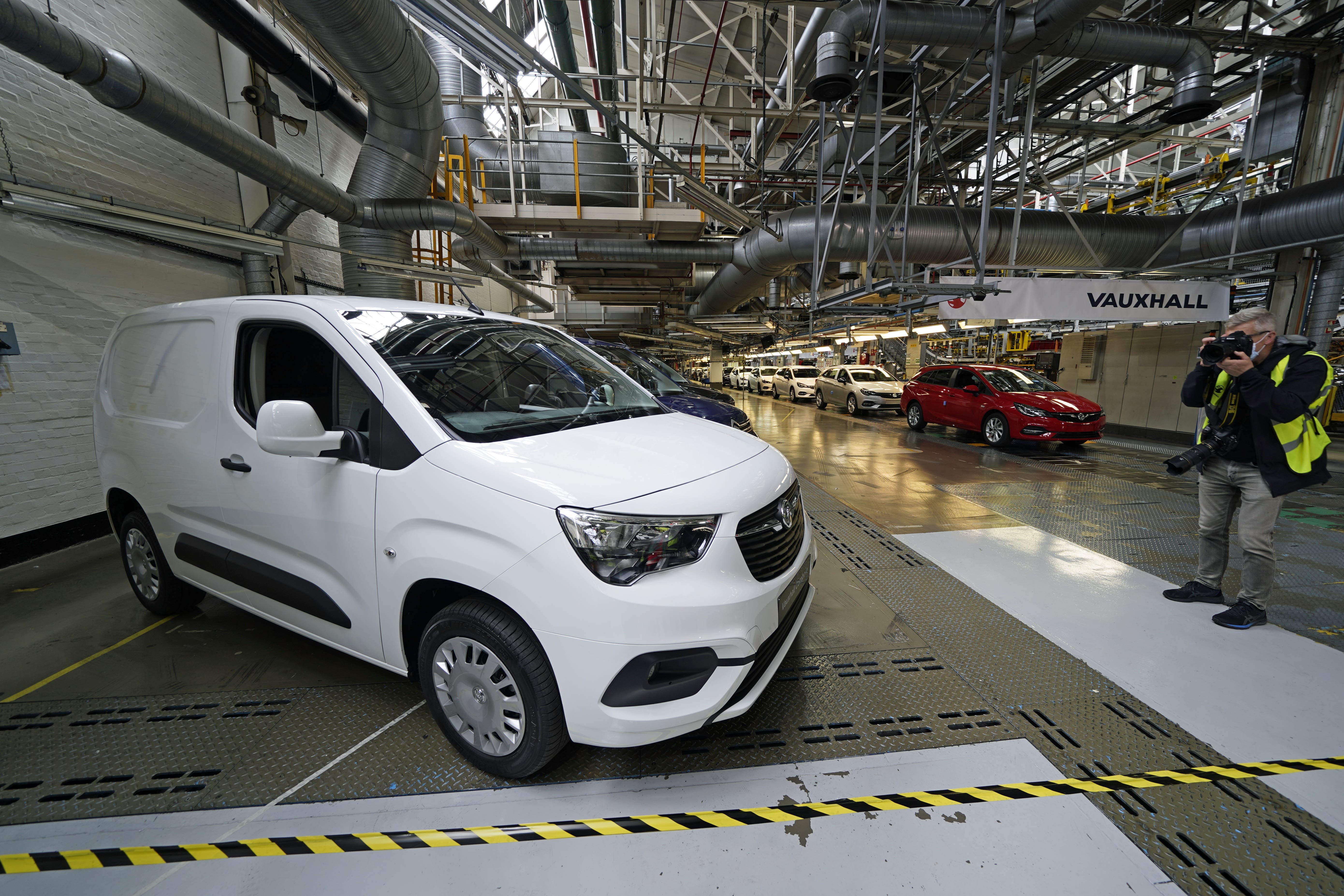The UK’s first electric vehicle plant is motoring. So why is the green economy stuck in the slow lane?
The country’s first production line dedicated to electric cars and vans is an important milestone – but until the charging infrastructure catches up, the revolution is at risk of running out of juice, writes James Moore


We have motored past an important milestone for the green economy. Stellantis’ Ellesmere Port plant is now charging up to be the first plant in the UK dedicated to producing electric vehicles – a significant win given the doubts over its future that swirled as a result of the UK’s Brexit trading arrangements.
A £100m investment on the part of its owner coupled with (of course) a government grant secured 1,000 jobs at site, not to mention many thousands more in the supply chain.
Electric LCV (vans) and passenger car models for the company’s Vauxhall, Opel, Peugeot and Citroën brands will be on their way out of the factory gates.
With the sale of new petrol and diesel cars set to be banned in the UK from 2030 (assuming the rumours of backsliding on the part of Prime Minister Rishi Sunak can be discounted) this is an important development.
But there has been something of an EV backlash building of late. While it would be tempting to dismiss those behind it as the usual suspects venting their reactionary spleen, the hard fact is that they sometimes have a point.
The UK might have its first EV factory. But those who invest in its products face a challenge. The charging infrastructure is not keeping pace with demand. Far from it.
As anyone who has driven electric could tell you, there simply aren’t enough charging points out there. This is particularly true of the super-fast ones necessary for longer distance journeys.
Nor is charging as simple as it ought to be. One might think it would just be a matter of plug in and pay. You input your credit card details and the charge is delivered, as people do with petrol pumps. But that often isn’t the case. Many charge points demand that frazzled motorists download an app before plugging in. These are often poorly designed - and that is putting it mildly - and prone to connectivity problems.
Let’s use Somerset as an example. Taunton and Glastonbury, both of which are in that county, are separated by a little over 20 miles of road. However, their public car parks require different apps if an EV user wishes to leave their vehicle on charge while on a visit.
Before long, a user’s phone risks getting overwhelmed by a bewildering array of these apps, each one more clunky than the last.
This is a policymaking fail of epic proportions in which politicians have sat back and left it to the market, which has developed in a way that miserably fails consumers.
Lurking in the background is another potential problem: that of tech being superseded. What happens if your EV boasts an old style plug that has become obsolete?
There is a nettle here that needs to be grasped and it is far from the only one.
The UK has been seen as a leader in wind power, at least in offshore wind power. A blot on its green credentials was lifted this week when the government announced plans to lift the de facto ban on onshore turbines under which they could be blocked if just a single objection from a nearby resident was submitted.
The National Grid describes onshore wind as “one of the least expensive forms of renewable energy (along with solar PV) and significantly less expensive than offshore wind power”.
“Cheaper infrastructure and costs to run means onshore farms can help lower electricity bills,” it argues. Goodness knows we could all use some of that.
Yet, while the policy change – forced upon the government by its own MPs – is welcome, campaigners argue that future developments continue to face a tangle of red tape which not even new coal mines have to put up with.
This must change. While we’re at it, the mightily impressive offshore industry could use some attention too. Stricken by inflation, and the resulting higher costs, Vattenfall, one of the biggest developers, has put the brakes on a huge UK project that would have served as an important contributor to its meeting its ambitious generating targets.
Today (Friday) will see the results of a key renewable energy contract auction announced. There isn’t much optimism for offshore wind’s prospects, if there were even any bidders at all (the rumours suggest there may not have been). Calls for a shake up in the way it is funded are only going to grow louder.
No wonder the Climate Change Committee, which has a statutory obligation to monitor government progress towards reducing emissions and to report on the UK’s progress in responding to risks and challenges, has been critical.
“Glimmers of the Net Zero transition can be seen in growing sales of new electric cars and the continued deployment of renewable capacity, but the scale up of action overall is worryingly slow,” it said in its progress update in June.
Note: I haven’t even considered the issues of home insulation or the roll out of heat pumps here.
Yes, the news that the UK has its first electric vehicle manufacturing facility up and running is welcome from the perspective of the green economy. But there is clearly an awful lot of work to be done. With the low hanging fruit largely picked, the question now is does Mr Sunak have the stomach for what lies ahead?






Join our commenting forum
Join thought-provoking conversations, follow other Independent readers and see their replies
Comments